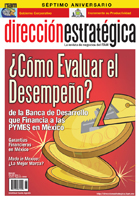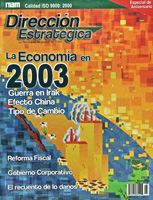 By: M.C. Norma Leal
By: M.C. Norma Leal
In the article “A 20 años del ABC” (“20 Years After ABC”), published in Dirección Estratégica [1] we presented the advantages and disadvantages of an activity-based costing system (ABC). The ABC system can calculate unit costs more accurately than a traditional costing system, and it also improves the processes because the activities to carry them out can be better understood. We also stated that more than 20 years after ABC was developed in its current form, studies from different countries show low adoption rates and that a large number of companies that adopted the system had already abandoned it.
Subsequently, in a second article, “Is my costing system obsolete? [2], we saw the reasons why the companies change to an ABC costing system and the symptoms of a costing system when it becomes obsolete. The obsolescent systems warn companies of potential distortions of their production unit costs calculated with a costing system based on volumes.
 By: Benito Revah and Genoveva Ayala
By: Benito Revah and Genoveva Ayala































Estimating Reasonable Value and Capital Cost in Emerging Markets
and Jorge Omar Moreno Treviño
The valuation of financial statements is fundamental for understanding the nature and dynamics of companies. Among the elements that pose the greatest difficulty in determining the value of the company, capital cost is basic for estimating and calculating the various items of the financial statements. This valuation can be somewhat challenging when the company operates in an emerging economy, because its situation may be incompatible with the methods applied in more developed markets.
(read more…)